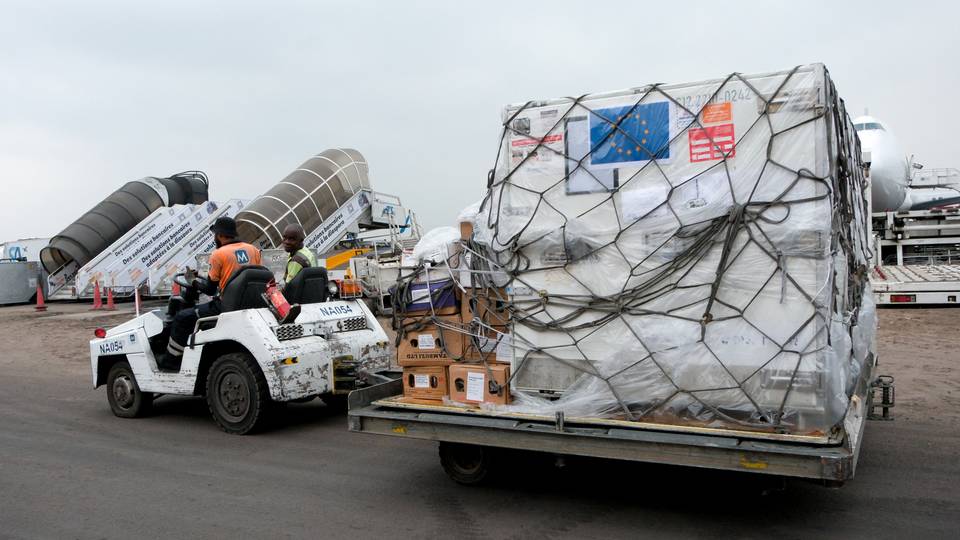Sport
Dollar
38,2552
0.34 %Euro
43,8333
0.15 %Gram Gold
4.076,2000
0.31 %Quarter Gold
6.772,5700
0.78 %Silver
39,9100
0.36 %Mass displacement of people in the Democratic Republic of Congo because of the ongoing conflict is complicating management and prevention of Mpox as sanitation and nutrition challenges abound.

Believe it or not, there is such a thing as the "social life of viruses". But unlike the rest of the living world that seeks order, this microscopic, invasive society thrives in chaos.
Public health experts dread this symbiotic cocktail of chaos and proliferation of viruses, just as it often occurs in some parts of the world.
The epicentre of the current Mpox outbreak, which the World Health Organisation has declared "a public health emergency of international concern", is the Democratic Republic of Congo, a country reeling from a long-drawn conflict involving several rebel groups.
Médecins Sans Frontières (MSF), also known as Doctors Without Borders, says cases have been reported in densely populated areas like Goma – a city of two million people – and in sites where hundreds of thousands have sought refuge due to the ongoing armed crisis in North Kivu.
"Over 23 confirmed cases were recorded in North Kivu in the past week alone, but we observe a progressive rise in cases. There has also been a spread in the camps for internally displaced people, with 11 cases being confirmed," Agnese Comeli, who is leading MSF's Mpox response in Goma, tells TRT Afrika.
An outbreak in the crowded camps is worrisome for the medical fraternity. "The pillar of Mpox care is the prevention of complications by improving hygiene, symptomatic treatment and dressing lesions," says Comeli.
Squalid conditions
Healthcare experts are particularly concerned that the conditions for prevention and containment are lacking in and around Goma.
“How can we expect families living in tiny shelters, without adequate water, sanitation facilities, or even soap, to implement preventive measures? How can malnourished children have the strength to ward off complications?" wonders Dr Tejshri Shah, a paediatric and infectious diseases specialist with MSF.
Dr Shah is also concerned about the high levels of sexual violence and exploitation affecting girls and women living in the camps.
"During a counselling session that I attended with survivors of rape, I came across a woman who lives with her seven children under a plastic sheet. Her partner abandoned her after the assault," Dr, Shah says.
The MSF specialist reckons Mpox prevention measures are unimaginably challenging to implement in the camps.
"If the rape survivor I met develops a rash due to Mpox, she will be told to change her linens, wash everything thoroughly, disinfect her belongings, and isolate herself until she heals. But how can she wash without soap and with only a few litres of water available daily?" says Dr Shah.
"How can she isolate herself and protect her children while living together under their plastic-sheeting shelter? If she isolates, who will get food for the kids? Who will collect firewood? Who will comfort the newborn?"
Vaccine relief
The arrival of the Mpox vaccines in the country offers a semblance of hope for conflict-ridden DRC and healthcare experts working to contain the outbreak.

"We are pleased to receive the first shipment of close to 100,000 doses of the JYNNEOS vaccine in the DRC, with an additional 100,900 doses in the next consignment," says Jean Kaseya, director general of Africa Centres for Disease Control and Prevention (CDC).
By the end of last week, a total of 200,000 doses were to be available in the country.
Mpox is endemic in several provinces of the vast Central African country. Since the start of 2024, DRC's ministry of health has reported over 4,901 confirmed cases, with about 630 associated deaths.
Healthcare experts say these figures represent a sharp escalation in both infections and fatalities compared to previous years.
Although the long wait for vaccines has ended, availability is inadequate to cover the vulnerable population.
"The WHO-recommended Mpox vaccine is costly, and its production is still not enough to respond to the needs on the field," explains Comeli.
Ultimately, it is not just the vaccines that will fix the problem. Healthcare experts acknowledge that improving living conditions is critical in fighting such outbreaks.
An end to the long-drawn armed conflict will mean DRC's displaced population can leave the filthy conditions in the camps and return to the comfort of their homes, where they would be less vulnerable to Mpox.
➤ Click here to follow our WhatsApp channel for more stories.
Comments
No comments Yet




















Comment